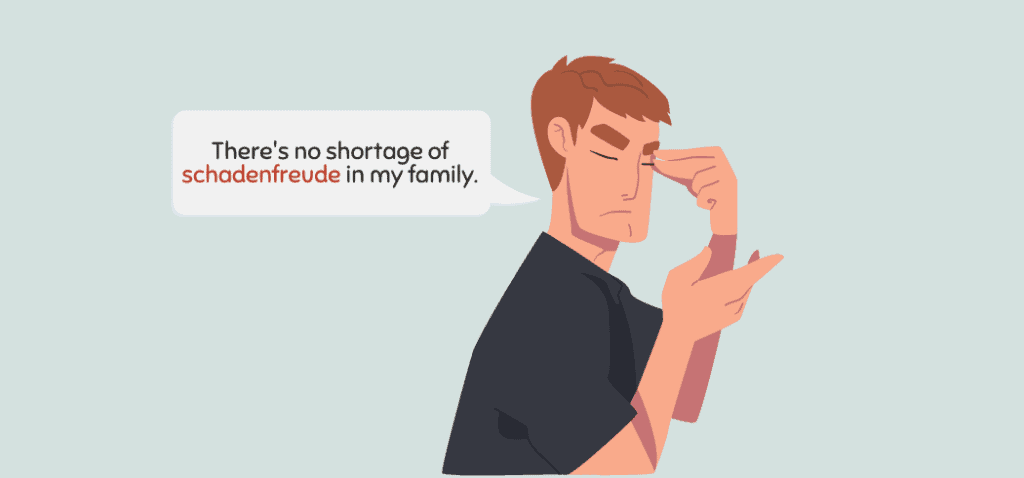The German language has a knack for providing precise words for specific situations or emotions. One of these lovely terms is schadenfreude, which you may have encountered without understanding its full depth and implication. So, let’s unravel this complex German term together and see how you can apply it in everyday conversation.
Schadenfreude Meaning Explained

Schadenfreude is a complex emotional concept derived from the combo of two German words—Schaden, which means harm or damage, and freude, which translates to joy.
What, those two things don’t mix! But the term actually refers to the idea of taking pleasure or finding joy in someone else’s pain or misfortune. Basically, it’s a word for how sadists feel.
Schadenfreude Pronunciation
This tongue-twisting term is pronounced as shah-den-froy-duh. Also, it’s usually italicized in most contexts.
What Is the English Word for Schadenfreude?
Surprisingly, there is no exact single-word equivalent in English for schadenfreude. English speakers have adopted this German term to express this complex emotion, but you could use sadistic in some cases.
Schadenfreude as an Adjective
While schadenfreude is considered a noun, it can be used as a modifier in phrases like a schadenfreude smile or a schadenfreude moment.
Etymology of the Word Schadenfreude
As I said earlier, schadenfreude came about in the early 1900s and is a compound word made from two German words—schaden (damage or harm) and freude (joy). It’s supposed to describe a feeling that, while not exactly admirable, is undeniably human nature.
Is There a Synonym for Schadenfreude?
Yes, English lacks a precise equivalent, but it has a few phrases and idioms you can use to express similar sentiments.
- Gloating
- Malicious joy
- Sadistic
- Gloating delight
- Smug joy
Using Schadenfreude in a Sentence

Here are some examples of schadenfreude in a sentence to give you a better idea of what I’m trying to explain.
- I felt a pang of schadenfreude when I heard my rude neighbor had received a parking ticket for illegally parking on our one-way street.
- Jane’s considerable schadenfreude was revealed when she smiled at the news of her competitor’s misfortune with profits.
- It’s considered unkind to show schadenfreude, but sometimes it’s tough to hide that satisfaction when you see someone getting what they deserve.
- I feel a momentary schadenfreude in response to seeing my old high-school bully get divorced and lose their job.
- I would never wish ill will on anyone, but I couldn’t help but give a brilliant schadenfreude smile as I watched my horrible boss get fired and escorted out of the building.
- There’s no shortage of schadenfreude in my family; they’re all a bunch of sadists.
Jessica Simpson, whose 70-pound gain during her recent pregnancy hasn’t quite reversed course, also is in the eye of a schadenfreude storm. [New York Times]
Do You Feel Schadenfreude?
Schadenfreude is one of those really cool words that capture a nuanced feeling that can otherwise be tricky to explain in English. It helps you articulate an experience of happiness at the misfortune of others, however unflattering that may be. As you use the word, remember its German roots, and be aware of the complexities of the human emotional landscape it reveals.
Check out some other articles we covered:

Comments are closed.